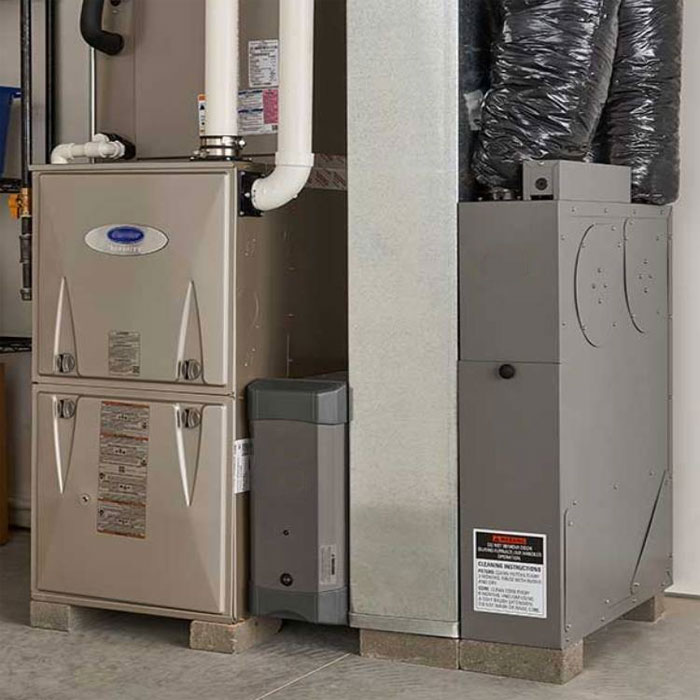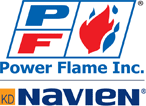
As homeowners, one of the biggest investments we make and expenses we incur is on our home's heating and cooling systems. If your heating system is more than 10-15 years old, you've likely noticed your energy bills creeping up as the equipment becomes less efficient. And if your system is prone to breaking down and requiring repair, those costs add up too. Replacing an aging, inefficient heater with a new high-efficiency heating system can result in a big savings in your energy costs going forward.
What Is a High-Efficiency Heating System?
The term "high efficiency" gets thrown around a lot when describing HVAC equipment. But what makes a system high-efficiency versus standard efficiency? Efficiency refers to the amount of energy converted to heat versus the amount of fuel consumed. The higher the efficiency percentage, the more heat is generated while burning less fuel.
Standard efficiency gas furnaces operate at around 80% efficiency. Compare that to a modern high-efficiency gas furnace which can achieve 95-98% efficiency. The difference may not seem huge at first glance, but it translates to big energy savings over time. High efficiency systems extract more heat from the same amount of fuel while reducing energy waste.
Upgrading from an older 80% efficient model to a new 95% efficient system can lower heating costs by 10-15% or more. In cold climates where the furnace runs heavily during winter, the annual savings can be several hundred dollars. Over the 15-20 year lifespan of a new furnace, your investment can pay for itself multiple times over through lower fuel bills.
How High-Efficiency Furnaces Achieve Better Performance
With technology advancing rapidly even in the last 5 years, a new high-efficiency heating system is leaps and bounds ahead of the performance and features of the equipment it replaces. High efficiency furnaces utilize advanced designs that maximize heat transfer and reduce heat loss. Some ways they improve efficiency include:
- Condensing Technology : Extracts latent heat from exhaust gases, recycling additional heat that would otherwise be wasted.
- Variable-Speed Blowers : Slows airflow during initial warm-up for more uniform heat distribution. Ramps up to distribute air faster once target temperature is reached.
- Sealed Combustion : Prevents heated air from escaping by supplying separate ventilation air for combustion.
- Improved Insulation : Reduces heat loss from the furnace cabinet/housing. High efficiency heating isn't just for furnaces either. ECM motors in air handler units, high performance heat pumps, condensing boiler designs, and tankless water heaters also provide major efficiency gains.
Benefits of High-Efficiency Heating Beyond Energy Savings
While slashing energy consumption is reason enough to upgrade, modern high-efficiency heating systems offer additional benefits:
- Enhanced Comfort : Precise temperature control, minimal hot/cold spots, better humidity management.
- Quieter Operation : Insulated cabinets, multi-stage fans/compressors allow units to run at lower sound levels.
- Safety & Reliability : Advanced controls, sealed combustion, and electronic fault monitoring improve safety and reliability.
- Smart Connectivity : Many new systems can be controlled remotely via smart home interfaces.
- Improved Air Quality : Multi-stage, variable-speed operation reduces temperature swings and fan cycles. Removes excess moisture from the home.
- Rebate Eligibility : Many utilities offer rebates for upgrading to ENERGY STAR certified high-efficiency heating equipment.
- Environmentally Friendly : Lower fuel consumption and greenhouse gas emissions. Using less energy is always green.
Considerations When Upgrading Your Heating System
Replacing your home's furnace or boiler is not a small investment, so here are some things to keep in mind:
- Do Your Homework : Research the major brands and efficiency ratings. Focus on reliability and total cost of ownership, not just lowest upfront price. Your heating contractor can help you with this selection.
- Consider Ductwork : Old leaky ducts waste heated air, negating efficiency gains. Ask if your ducts need sealing/insulation.
- Size Matters : An oversized system cycles on/off more (short cycling), reducing efficiency. An undersized system can't keep up. Have a load calculation done to right-size your new equipment.
- Include Ventilation : Today's airtight homes need dedicated fresh air ventilation to maintain indoor air quality.
- Look for Rebates : Many utilities offer generous rebates on high-efficiency heating equipment, lowering costs further.
- Financing Options : Most contractors can offer low interest financing that may beat credit cards or tapping home equity.
While the upfront cost of a new heating system is a major factor, don't just shop on price alone. A very low quote may signal lower quality equipment or corners cut on proper sizing and installation. Focus on total value over the long haul. An extra few hundred dollars upfront can yield thousands in utility savings down the road.
Is Now the Right Time to Upgrade to a High-Efficiency Heater?
As with any major home upgrade, there's never a perfect time to replace your heating system. But if your current equipment is showing signs of age like frequent repairs, high utility bills, uneven heating, excessive noise, or safety concerns, those are clear indicators. With colder weather coming, you'll want your home's heating system in peak condition.
Most HVAC systems last 15-20 years, sometimes longer. But efficiency and performance degrade over time. If your furnace or boiler is near or past the 20-year mark, the benefits of upgrading likely outweigh the costs of continuing to maintain an aging, inefficient system.
Advancements in technology, energy efficiency incentives, and potential utility bill savings make now an opportune time to consider upgrading your home heating. Consult with an HVAC professional to explore if a new high-efficiency system is right for your needs and budget. With a little planning and research, you can make an informed decision about investing in one of your home's most important systems.
Upgrading to a high-efficiency heating system is a decision that aligns with both your personal comfort and the greater good. It's a choice that offers a warm and cozy home today and a better world for tomorrow. So, whether you're motivated by savings, environmental responsibility, or improved comfort, making the switch to high-efficiency heating is a choice you won't regret.


